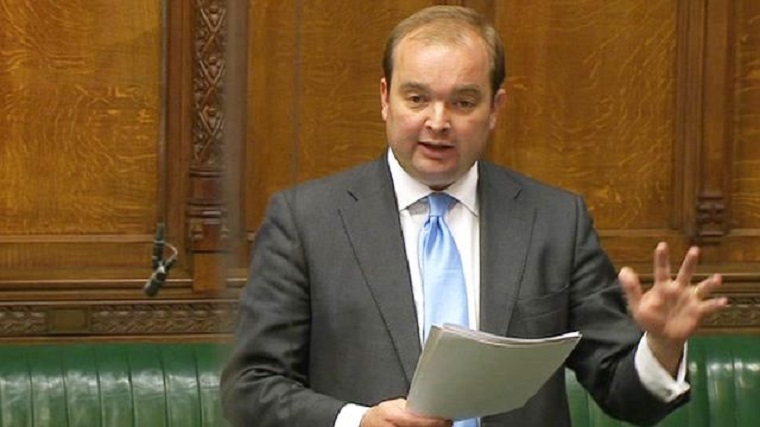A British Member of Parliament has asked the West and African countries to help provide leaders like President Robert Mugabe a soft landing when they exit.
Conservative Member of Parliament James Duddridge, a former Minister for Africa, said this on Wednesday during a debate about relations between the UK and West Africa and accused some of the British media of having “a whiff of colonial snobbery”.
He said although Zimbabwe was not part of West Africa, there were some parallels in relation to soft landings for exiting leaders citing the example of Gambian leader Yahya Jammeh who was given refuge in Nigeria.
President Robert Mugabe turns 93 next month but is planning to contest elections next year to serve another five-year term which means he will be 99 if he survives the term.
There are already signs that his health is failing and he no longer has the capacity to carry out his duties but his party insists he has to fulfill his mandate.
One of his admirers Julius Malema has accused Mugabe’s lieutenants of being cowards for not telling him to step down to give way to a younger leader.
A local prophet has also prophesied that Mugabe will die on 17 October this year while a leading British intelligence publication has said that Mugabe might not contest next year’s elections because he will either have died or will be incapacitated.
Full contribution:
Before diving into the substance of the debate, I bring Members’ attention to my entry in the Register of Members’ Financial Interests. The reason for the debate was to probe the Government on their reaction to the recent election in Ghana, but in my mind, and I suspect in the minds of other hon. Members, the debate has somewhat morphed into a veritable tour de force of pan-regional issues. I hope it will be an opportunity for Members to delve into specific countries and highlight specific thematic trends and general trajectories across west Africa and the UK’s relationship with that region.
I start with Ghana, which I had the privilege of visiting relatively recently, alongside my hon. Friend Adam Afriyie in his role as the prime ministerial trade envoy to Ghana. That was a very interesting time. It preceded the election and built on the relationship I already had with a number of Ghanaian politicians, including Hannah Tetteh, the ex-Foreign Minister, on whom I heap praise for her work across the region. I felt a measure of sadness about the transition of people with whom I was used to doing business, but equally I am optimistic about the new Government, which is perhaps ideologically slightly more closely aligned to the Conservative party.
The new President, President Nana, has a strong team but does not have the benefit of Short money, as we would have here. I would urge the Minister to see what we can do to help the structure of Government in Ghana and addressing that country’s challenges.
One challenge is that of customs, with goods going in and out. There was a horrendous amount of corruption throughout the 20 processes. I did jokingly ask the excellent high commissioner Jon Benjamin to put in the diplomatic telegram that I had suggested at a number of points taking the head of customs to one side and shooting him by way of example. Clearly, that is not something that I would literally encourage, but such was the need for shock therapy in Ghana. I hope the new Government of Ghana will take the opportunity to engage in that challenge.
I saw a number of good companies, including Blue Skies, which provides fruit to the UK. As well as praising my hon. Friend the Member for Windsor in his trade role, and praising the ex-Foreign Minister for Ghana, and Jon Benjamin the high commissioner, I thank the high commissioner here, Victor, who was very good in exposing issues around the region and introducing me to west African colleagues based in the United Kingdom. I wish him well in his future.
Perhaps the view from the Foreign Office and the Minister is that Morocco is part of north Africa, but it looks towards west Africa more and more. Only this January there was a Ghanaian-Moroccan economic summit in Accra to look at how they could do business. The King of Morocco has reached out to west Africa over a number of years for trading relationships. I note that Morocco was reported in the African press as having the numbers to formally enter the European Union—sorry, not the European Union! That was a Freudian slip. It meant to say that it has the numbers to enter the African Union, which I think would plug a gap that has far too long been an anomaly in the African Union, notwithstanding Western Sahara.
Continued next page
(475 VIEWS)
